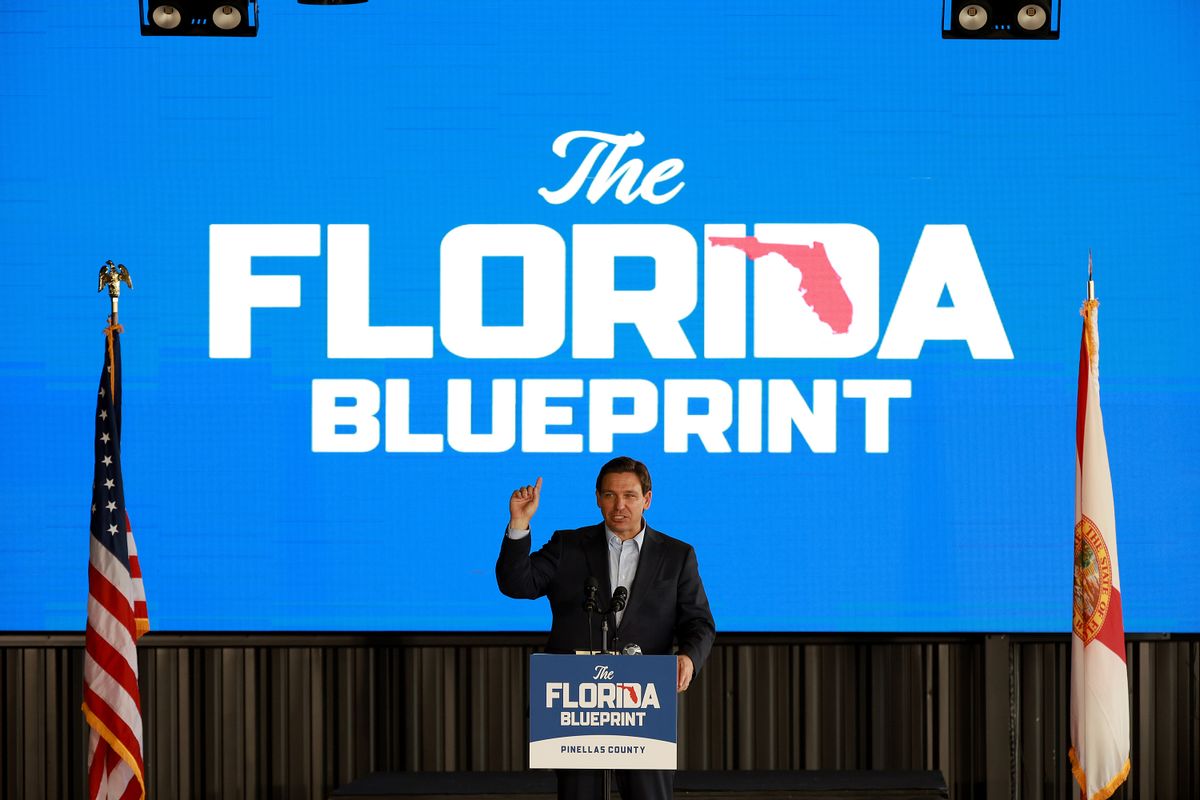On March 22, 2023, Harvard epidemiologist Eric Feigl-Ding tweeted about a "complete ban in Florida proposed on health insurance coverage" for what that state's legislators defined as "gender clinical interventions."
He also argued that the bill's text is so vague as presently written that it could ban "birth control, hormone treatment for menopause, for breast cancer, anti-androgen treatments for prostate cancer, [and] for PCOS [polycystic ovary syndrome]" among others.
Feigl-Ding was referring to Florida bill H.B. 1421, which advanced from the Florida House Healthcare Regulation Subcommittee on March 22, 2023. It seeks to ban doctors from performing what is typically referred to as gender-affirming care.
The claim that this bill, as presently formulated, bans health insurance companies from providing coverage for gender-affirming care is unambiguously true, as described in the bill's staff analysis:
In addition to the practitioner regulation, the bill addresses coverage of gender clinical intervention
services. The bill prohibits health insurers and health maintenance organizations operating in Florida from providing coverage for such treatments.
While portions of this bill — the near complete ban on doctors performing gender clinical interventions — apply only to performing those interventions on minors, the ban on insurance coverage applies to anything that meets the state's definition regardless of age.
The proposed law's overbroad definition of gender clinical interventions is, in contrast to the proposed statute about insurance coverage, quite ambiguous. The bill defines them as "procedures or therapies that alter internal or external physical traits." As written, exceptions to that definition apply to "a minor born with a medically verifiable genetic disorder of sexual development."
The bill explicitly names "sex reassignment surgeries or any other surgical procedures that alter primary or secondary sexual characteristics" as well as "puberty blocking, hormone, and hormone antagonistic therapies" as examples of gender clinical interventions. Would this legal language also ban things, as Feigl-Ding argued, like birth control and prostate cancer treatments?
It's hard to see how it wouldn't. Secondary sexual characteristics are gender-specific features not directly involved in reproduction, and involve a vast array of bodily functions and processes implicated in myriad other medical complications.
For this reason, the bill's text could ban insurance coverage for a variety of treatments, therapies, and medicines unrelated to actual gender-affirming care.
Unintended Consequences?
The presence of a menstrual cycle, for example, is considered a secondary sexual characteristic. Hormonal birth control is a hormone therapy that works, in general terms, by altering a woman's menstrual cycle. By the present definition, this would be a gender clinical intervention.
Breasts, similarly, are also a secondary sexual characteristic. In some cases of breast cancer, a mastectomy — the removal of breasts — is a required treatment or preventative strategy. Such a surgery would undeniably alter a secondary sexual characteristic and, by the present definition, would be considered a gender clinical intervention.
Post-menopausal women with a specific form of breast cancer related to hormone receptors are often treated with a class of drugs called aromatase inhibitors, which is literally a hormone antagonistic therapy. Because this treatment also alters secondary sexual characteristics, such a therapy appears to meet the bill's definition on two levels.
Hormone therapy is also used to treat prostate cancer. Drugs called luteinizing hormone-releasing hormone (LHRH) agonists, for example, "prevent the pituitary gland from secreting a hormone called luteinizing hormone," which blocks a male's body from secreting a hormone that produces androgen. This could reasonably fit the bill's proposed definition of "a gender clinical intervention."
Feigl-Ding's final example is polycystic ovary syndrome (PCOS). The condition describes small sacs of fluid known as cysts that develop along the outer edge of the ovary and contain immature eggs that fail to be regularly released. Though enigmatic, it can be caused by higher than normal androgen levels and is often treated with hormone therapies, plainly fitting the bill's definition of gender clinical interventions.
The Bottom Line
The bill is presently being considered by the Florida House Health & Human Services Committee. A parallel bill in the Florida Senate advanced through two Senate subcommittees as of Mar. 23, 2023.
Because there is no doubt that this bill bans insurance companies from covering procedures classically considered to be gender affirming care — sex reassignment surgeries or any other surgical procedures that alter primary or secondary sexual characteristics — the claim is true.
Because the bill's definition of gender clinical interventions is so broad, that insurance ban, as written, could well extend to a variety of treatments that fall outside the bounds of gender affirming care as well.

